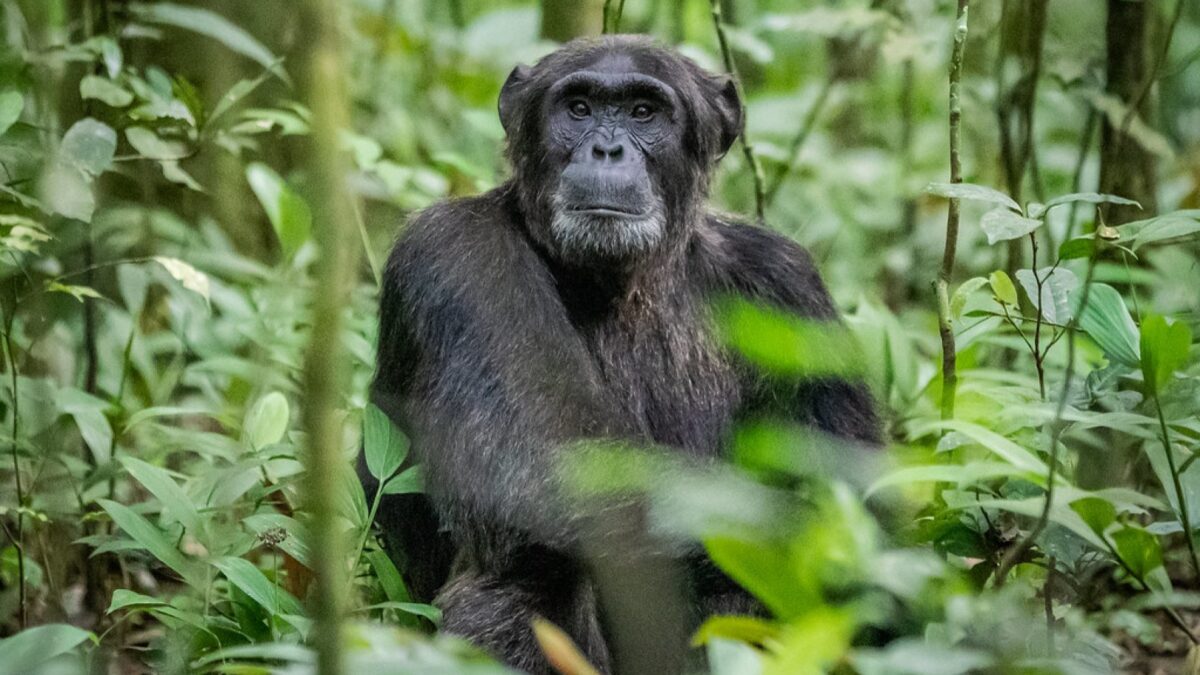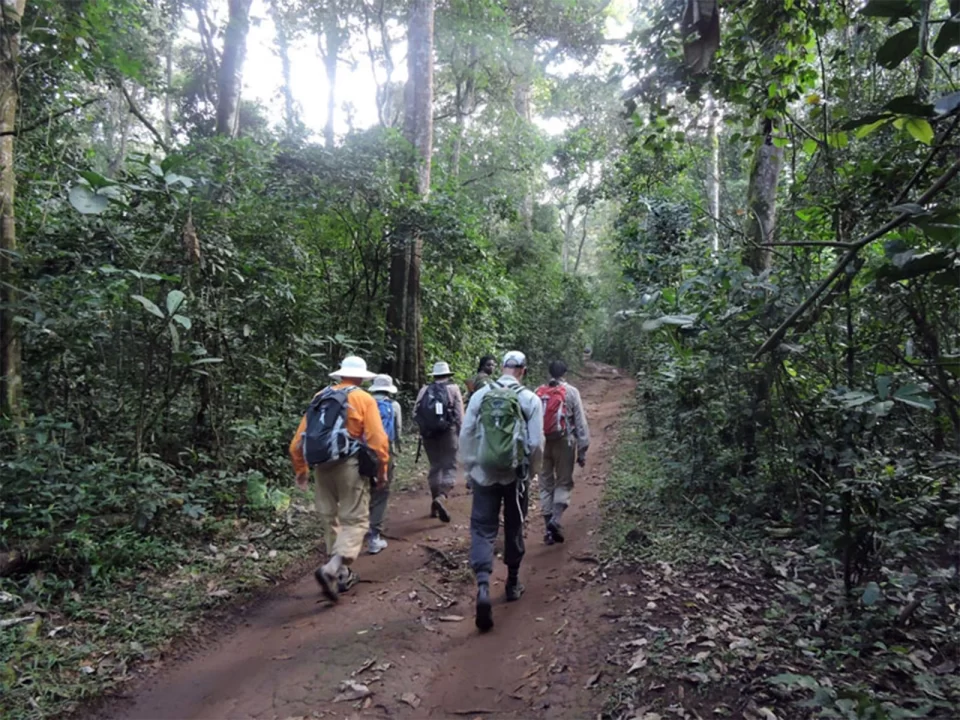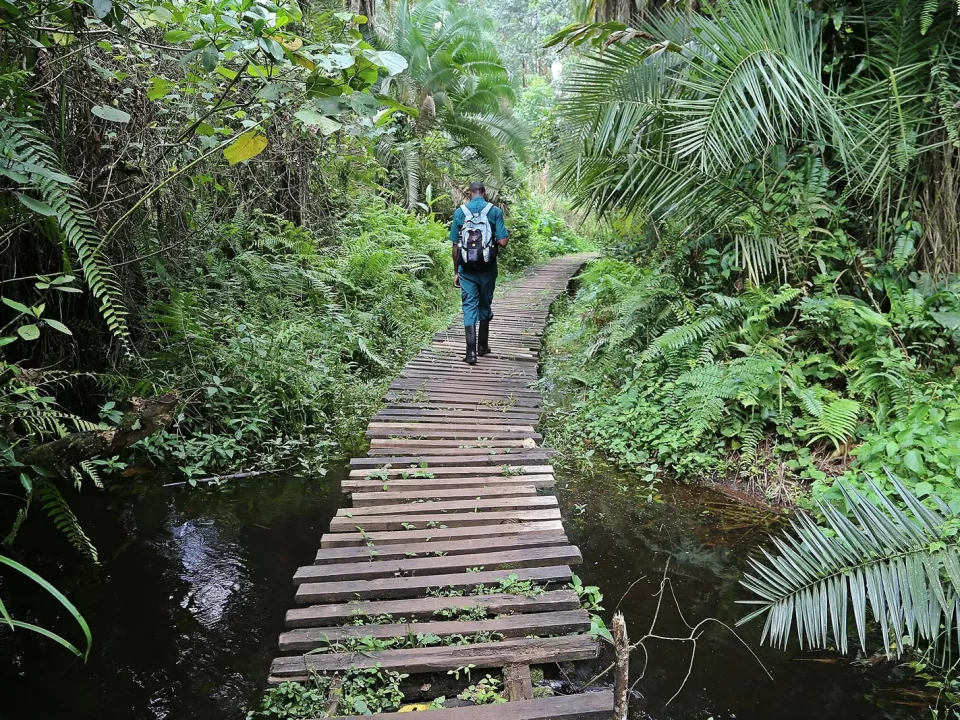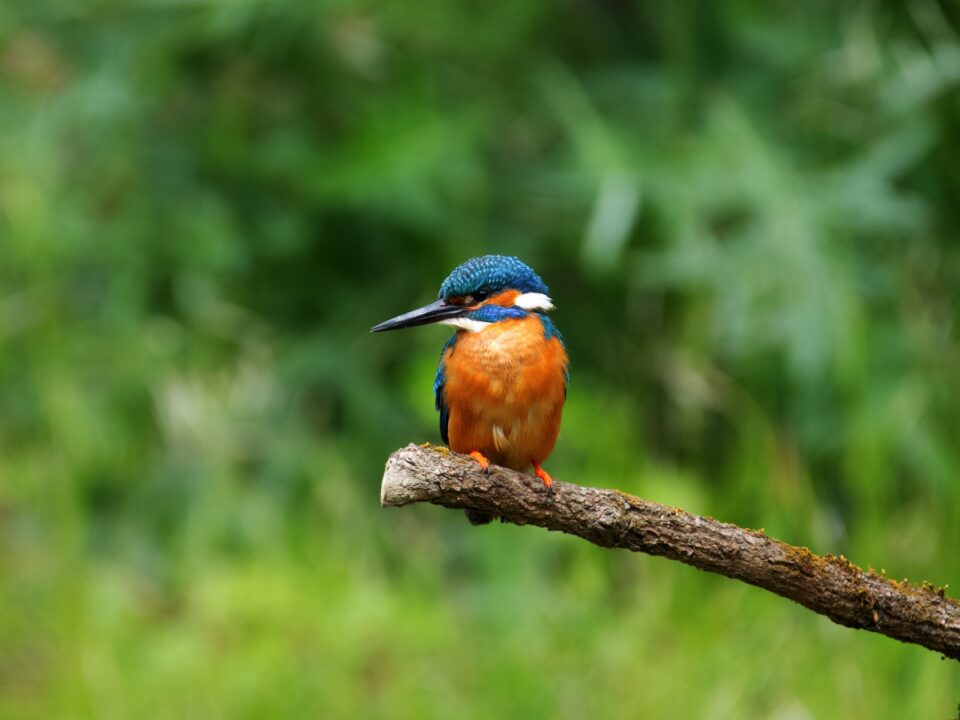Primate Capital of the World

3-Day Budget Uganda Gorilla Safari from Kigali
January 24, 2024
5-Day Fly-in Mgahinga Gorillas and Lake Mburo Safari
January 24, 2024Discover the Primate Capital of the World: Kibale Forest National Park in Uganda – Unveiling the Wonders of Primate Trekking Safaris
Embark on an extraordinary journey to the primate capital of the world, Kibale National Park in Uganda, where the enchanting realm of over 13 primate species awaits. Nestled within 795 square kilometers of lush forested land, Kibale National Park is a haven for nature enthusiasts, boasting unparalleled biodiversity, with primates playing a pivotal role in the ecosystem.
The Guardians of Kibale Forest: Chimpanzees and Their Conservation Role
Among the diverse primate species, the Chimpanzees stand out as active conservationists. As herbivores or fruit feeders, Chimpanzees contribute significantly to the forest’s preservation. Their role extends beyond mere consumption, as they aid in the regeneration of the forest by dispersing seeds through their defecation. Kibale National Park owes its fortune to these diligent Chimpanzees, fostering a symbiotic relationship that ensures the vitality of this natural wonder.
Apart from the prominent Chimpanzees, Kibale National Park hosts a total of 12 other primate species, forming a diverse primate community. Despite the superstition surrounding the number 13, Kibale National Park proudly embraces the distinction of harboring 13 different primate species. A mere 6-hour drive from Kampala, Uganda’s capital city, this forest paradise promises an unforgettable wildlife experience.
The Primate Pantheon of Kibale: Meet the Residents
Olive Baboon:
Dull-brown and potty-faced, the olive baboons patrol the forest like diligent traffic cops. With wide shoulders, sturdy limbs, and sharp teeth, they exude a wrestler-vampire appearance. Organized into well-structured troops, these baboons, led by an alpha male, weigh up to 50 kilograms and display fascinating mating rituals.
Bush Babies/Demigoff Galago:
Nocturnal and skilled climbers, bush babies captivate with their large orange-brown eyes and unique calls. Their prehensile hands and long tails make them adept hunters, leaping through trees with the agility of basketball players.
Black and White Colobus Monkey:
Leaf eaters by preference, these monkeys exhibit remarkable agility. With black and white fur resembling a Michael Jackson song, they navigate the forest canopy with ease, showcasing their ability to clear significant gaps between trees in a single leap.
Pottos:
Nocturnal and deliberate in their movements, pottos display large, unblinking eyes, round heads, and stumpy tails. Their grooming claw, used for cleaning, adds to their unique features as they navigate the forest terrain.
Chimpanzees:
The charismatic and noisy tree-dwellers, chimpanzees captivate with hoots, high-pitched screams, and a vibrant display of communication. Kibale Forest is home to five habituated chimpanzee groups, offering an unparalleled opportunity for up-close observations.
Vervet Monkey:
Ash-grey with black faces, vervet monkeys are adept terrestrial and tree-dwellers. Known for their similarity to human temperaments, they may approach unattended food, showcasing their adaptive behavior.
Blue Monkey (Cercophecus Mitis):
Intense-looking and bluish in hue, these monkeys exhibit promiscuous behavior. Hybridization with red-tailed monkeys in Ngogo adds a touch of diversity to their appearances.
Grey-Cheeked Mangabey (Cercocebus Albigena):
Non-confrontational and social, grey-cheeked mangabeys forage in groups, displaying a blend of white and grey cheeks. With a distinctive doglike head and gold-like mane, they embody a unique charm.
Ugandan Red Colobus:
Carrot-topped with brown buff torsos, Ugandan red colobus monkeys form multi-male groups for protection against chimpanzee attacks. Known for their impressive leaps and large troops, they thrive in the forest environment.
L’hoest’s Monkey (Allocchrocebus Lhoesti):
Grey-cheeked and mustachioed, L’hoest’s monkeys sport a dark brown coat with distinctive chestnut coloring. Found in small troops, these diurnal primates offer glimpses of their distinguished appearance along the main Kibale road.
Red-Tailed Monkeys:
With burnish copper tails, white cheeks, and loud calls, red-tailed monkeys balance themselves while leaping through the forest canopy. Active in the mornings and evenings, they exhibit a varied diet of fruits, insects, and flowers.
Uganda Mangabey (Lohocebus Ugandae):
Dark and ash-colored, Uganda mangabeys move in groups led by a dominant male. With a gold-like mane and foraging habits both in trees and on the forest floor, they present a captivating sight.
Planning Your Primate Trekking Safari in Kibale Forest National Park
To witness this primate pantheon, plan your primate trekking safari in Kibale Forest National Park with Trek Africa Expeditions. Please note that some primate species are nocturnal, making a comprehensive viewing challenging in a short trip. Contact Trek Africa Expeditions to tailor your primate tracking tour and immerse yourself in the captivating world of Kibale National Park, the primate capital of the world.




